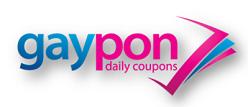The news that Groupon has had a summer worse than the Chicago Cubs has a lot of people in radio – and in marketing – buzzing. In fact, Groupon traffic took a 50% hit this summer, suggesting the possibility of deal burnout.
Or is it? Because during this same period, Living Social traffic jumped 27%. Other deal sites, however, have also experienced slowdowns.
 So, is it the proliferation of deals sites, a summer slowdown, a Groupon-specific issue, or something else? Clearly, radio has become more involved with deals and discounts, and Cumulus, in particular, has talked about this avenue bullishly.
So, is it the proliferation of deals sites, a summer slowdown, a Groupon-specific issue, or something else? Clearly, radio has become more involved with deals and discounts, and Cumulus, in particular, has talked about this avenue bullishly.
First, the explosion of deal sites can’t be helping. I received an email the other day touting Gaypon – yup, a Groupon competitor that focuses on gay-friendly businesses. And in four markets, there’s “Oy, What A Deal,” focusing on Jewish deal-seekers. And the list goes on and on.
Second, this web trend couldn’t possibly sustain itself at 2010 levels. Like a new radio station that explodes on the scene that often settles down after a few books, Groupon was flying awfully high and had to drift back to something a bit more realistic.
Third, Groupon’s lack of personalization is a problem. I have whined about this on this blog in the past, but why doesn’t Groupon know me by now? I have filled out my preferences, and yet I still get deals like the one pictured here. And yes, Sterling Heights is miles and miles away from where I live. Bad targeting and the lack of deals that are truly appealing to me are limitations. If I weren’t in this business, I would have unsubscribed a long time ago.
Fourth, AdAge blogger, Simon Dumenco (The Media Guy) calls Groupon “old media masquerading as new media” because of its tendency to essentially email blast large numbers of consumers with uncustomized emails. And he’s right. We all want a great deal, but this mass market approach gets old.
I’m a believer that the Great Recession signaled a mindset change among most Americans, forcing a rethinking of basic buying habits. These days, everyone’s looking for a great deal, a bargain, a way to save money on even basics. A well-targeted digital coupon program that allows me to shape my preferences and buying desires is still very attractive.
That’s not what Groupon has done, and it hasn’t shown signs of getting better. Now there are rumblings that Groupon’s IPO is on hold, a sign that financial losses and usage decreases could be taking their toll.
In so many ways, radio has the chance to put together deals programs that are superior to Groupon’s. If you talk to people who have tried Groupon, there are a number of limitations beyond the ones I’ve already mentioned. And on the plus side, radio has the cume reach, the brand equity, credible personalities, and the potential to personalize and target deals to provide more value and a better customer experience.
How’s your station’s discount/deals program? There is an opportunity on the local level to make money in this space, while attracting local businesses that would never advertise on the radio. But it will take a commitment to doing research, studying this opportunity, and offering bona fide advantages over the incumbent brands.
Let’s make a deal.
- What To Do If Your Radio Station Goes Through A Midlife Crisis - April 25, 2025
- A 2020 Lesson?It Could All Be Gone In A Flash - April 24, 2025
- How AI Can Give Radio Personalities More…PERSONALITY - April 23, 2025





Couldn’t agree more with your spot-on assessment of Groupon. They’re no longer the new kid on the block. Competition is fierce, and others are now doing it better. Incredible how quickly things change. If you’d asked me just a year ago whether I’d be interested in a Groupon IPO I’d have said, “Hell, yeah!” Not now — not by a longshot.
Thanks, Harvey. It is amazing how fast-paced the tech world is moving, forcing these companies to refine and redefine their goals and biz plans. Thanks for the note.
Hi Fred –
When I talk to broadcasters about the “deals” concept I get the feeling I’m talking to Yogi Berra when he commented about a popular local restaurant – “Nobody goes there anymore because it’s too crowded”. That’s the kind of response you get. Broadcasters predictably say “everybody’s doing it so why would I want to” (like no one else sells advertising). So others take an old school concept and make billions while broadcasters are focused on gaming ratings.
In a time where the ceiling on the revenue model for ads continues to lower (you can only run so many ads and can only charge so much) trying new revenue models would seem to be a no-brainer. You’ve talked about the 80/20 rule…broadcasters are famous for calling on the same 20% or less of businesses over and over in a market and ignoring the rest. Groupon/Living Social type companies have once and for all shown everyone the money that was left on the table by making a billion dollar business out of the other 80% of local business in communities large and small. Then telling local business you’ll never have to waste time advertising anywhere again! Some might say it’s too late to get in and that it’s a missed opportunity. I totally disagree. I say it’s time to compete! It’s doable and here’s why.
I have built a deals platform in Vancouver BC, Monterey California and soon in San Jose. We are slowly building an additional revenue stream. My partner Neil Gallagher has documented our lessons learned in articles that anyone can read here –
https://www.rbr.com/features/sales-marketing/making-a-groupon-style-revenue-sharing-work-for-your-clients.html
Broadcasters forget or ignore that radio has natural advantages that are so different from the Internet platforms driven by email databases. Radio has strengths that others pay big dollars for. (Groupons biggest expense is marketing.)
Here’s what makes radio different – (Fred, you already said some of this but “frequency sells…right!)
Radio already has customers in the store (listeners).
Radio has the ability to talk about the deal in a way that’s personally relevant and bring them to life. It’s the “power of sound”…have you seen this presentation from Katz? It’s really good. https://www.radioink.com/goout.asp?u=https://www.csgaudio.com/powerofsound/
Radio has frequency and can talk about deals all day long.
Radio has a history of trust serving local communities and listeners.
Radio also has a sales force already on the streets that just need to talk to the 80% of business they have passed on so far.
Radio also has the ability to target deals to their listeners’ personal wants and needs.
Fred you said “everyone likes a deal” and that will never change. But that’s also the difference between success and failure in this space. If broadcasters do the same kind of homework they did in targeting listeners’ tastes in music and targeted deals in a context that is personally relevant then it’s a win-win-win for the business, station and listener. Shakespeare once said “the play’s the thing”. Same goes for deals! This door is not closing, broadcasters just have to walk through it.
I love this comment (or better yet, post), Mike, because you frame the issue so well, mixed in with your real-life experiences. You’d think that at a time when so many radio stations, clusters, and companies are struggling on the revenue side, this opportunity would present itself as a shiny beacon of hope. As you noted, the thinking that the deal space is “taken” or non-viable is shortsighted. This is true, especially given the limited number of advertisers that buy time on stations. In other words, there are hundreds – or thousands – of businesses that don’t buy radio, but might if there was an alternate platform or different marketing opportunity. Thanks for contributing to the conversation.
We launched a Daily Deal affiliate last week in a mid-sized market with a 15K database. Nice, but not huge by radio standards.
I just checked the stats. So far today they’ve done $7K in revenue. TODAY. They are probably looking at $100K/month in revenue shortly.
Yeah, the money is there. You can let Living Social or Groupon have it or you can take it. It’s really up to you.
Thanks, Jim. We see it the same way. It requires doing after the business strategically, but the business is there. Thanks for being a part of our conversation.
Well said, Fred, but…thus far radio — as is it’s historical won’t — has done nothing but clone Groupon. It is not segmenting the audience and, worse yet, it is widely broadcasting deeply discounted deals, which likely reach existing customers thereby providing an unnecessary and unproductive discount. You (once again) nailed it regarding targeting deals. The question is who will be first to do so.
Thanks, B.C. The opportunity is right in front of us. Thanks for weighing in.